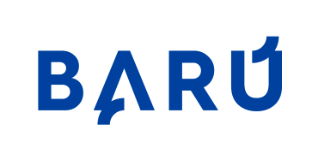
Internal and External Stakeholder Policy
BARTIN UNIVERSITY
FACULTY OF ENGINEERING, ARCHITECTURE AND DESIGN
DEPARTMENT OF LANDSCAPE ARCHITECTURE
INTERNAL AND EXTERNAL STAKEHOLDER POLICY
This policy document has been prepared by the "Quality and Accreditation Commission" of Bartın University, Faculty of Engineering, Architecture and Design, Department of Landscape Architecture in order to define the relations between the University Quality Coordinator and the stakeholders in the Accreditation process.
I. EXTERNAL STAKEHOLDERS
The non-institutional segments directly affected by the activities and services of the department are graduates, academic platforms, employer organizations (public, local government, private sector), professional chambers and non-governmental organizations. The needs of external stakeholders are analyzed in terms of activity and service objectives and ensuring the continuity and improvement of practices related to these purposes. The following tools are used to obtain the opinions of external stakeholders and to determine their needs:
1. Graduate Data Analysis
In order to analyse the realization rates of the teaching objectives of the programs, data on graduates are collected. For this purpose, a graduate database is created synchronized with the Graduate Information System of our university. Data on graduates are regularly transferred to this database and analysed.
2. Employer survey
It is the analysis of the knowledge, skills and competencies of the students through the eyes of the organizations that employ the graduates of the program. It is held once a year in the fall.
3. Intern Evaluation Survey
It is the evaluation of the intern's work attitude and personal competencies by the institution where he/she does the internship. It is held every year at the end of the summer, and is taken into account in determining whether the internship courses reach the teaching objectives. It is primarily evaluated by the internship commission and presented to the Department Chair in the fall semester.
4. Opinion of Professional Chamber
Opinion of TMMOB Chamber of Landscape Architects (Bartın Provincial Representative) is taken on the educational activities and services of the department. It is aimed to reveal the issues that need improvement in activities and services. It is done once a year.
5. Opinion of Non-Governmental Organizations
The opinions of the Turkish Association for Landscape Architecture Education & Science (PEMDER) and other education and research civil organizations are taken on the educational activities and services of the department. It is aimed to reveal the issues that need improvement in activities and services. It is done once a year.
6. Opinion of Academic Platforms
Opinion of Landscape Architecture Department Chairs Council (PEMKON) is taken on the educational activities and services of the department. It is aimed to reveal the issues that need improvement in activities and services. It is done once a year.
II. INTERNAL STAKEHOLDERS
As the in-house segments affected by all the education and research activities to be carried out in order to meet the targets set by the department in its strategic plan with both accreditation and annual curriculum changes; students, academic staff and administrative staff are its internal stakeholders. The opinions of internal stakeholders are taken in order to ensure the continuity and improvement of the strategic goals and objectives, mission and vision of the program, teaching objectives and practices related to these purposes.
The following activities play an important role in obtaining the opinions of internal stakeholders:
1. Internal Stakeholders Meetings
It is held with the internal stakeholders of the program at the beginning of each semester to evaluate education, training and other activities. Opinions and suggestions are reported and studies are directed according to previous evaluations.
2. New Student Survey
The compatibility of the expectations and career goals of the newly enrolled students with the teaching objectives and the motivation of the students are analyzed. The aim of this activity, whose target audience is newly enrolled Year 1 students, is to rate the willingness of new students to the program and to understand their career goals.
3. Graduation Student Survey
In line with the opinions of the students who are at the graduation stage, the level of achievement of the program outputs and teaching objectives is analyzed. The aim of this event, where the target audience is the senior Spring Semester students at the graduation stage, is to get the opinions of the students about the overlap of the education they receive with the program outputs and career goals.
4. Internship Evaluation Survey
It is the analysis of the contribution of the internships made by the students to the internship course outcomes and program outcomes. The target audience is the 3rd and 4th Year Fall Semester students who have completed their internships.
5. Course Evaluation Survey
It is carried out in order to evaluate the quality of the courses taken by the students, the course work of the lecturers and the teaching outputs of the course. The survey is administered to the students who take the course at the end of each semester through the UBYS system of the university. Each faculty member sees the survey results through the system, and the Department's Quality and Accreditation Commission evaluates the positive and negative aspects of the surveys with other relevant commissions in accordance with the PUKO cycle.
6. Opinion of Instructors
To ensure that the instructors evaluate the program outputs and teaching objectives and are involved in the management process; it is carried out in order to determine the compatibility of the department program outputs and teaching objectives with the aims of the faculty and the university. It is done at the end of each semester and opinions and suggestions are reported.
7. Student, Academic and Administrative Staff Satisfaction Survey
Satisfaction of all students, full or part-time academic and administrative staff of the department, faculty and university with infrastructure services (library, laboratory, informatics, etc.) and management processes is analyzed. It is held at the end of each semester, it is aimed to evaluate the general opinions and to reveal the improvement areas.


 Türkçe
Türkçe